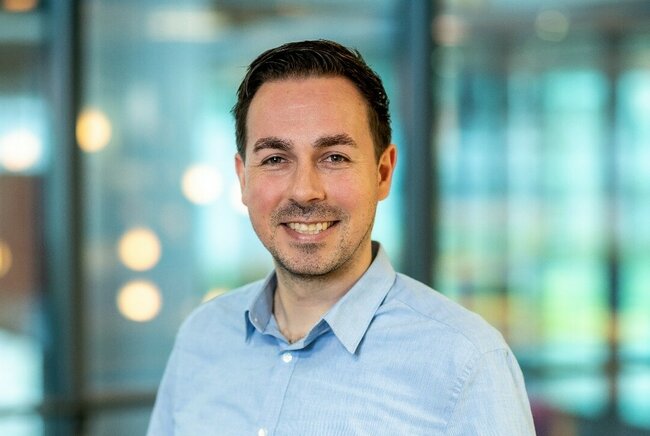How Virtual Power Plants can transform the energy transition
New research supports energy communities involved in smart grid experiments.

A radical transformation of the ways in which energy is consumed and produced is needed to drastically reduce carbon emissions and prevent catastrophic impacts of climate change. Phd candidate Luc van Summeren has investigated how emerging community-driven smart grid experiments such as Virtual Power Plants can revolutionize the energy transition. He defended his thesis at the department of Industrial Engineering and Innovation Sciences on 20th October.
The electricity grid is becoming increasingly ‘smart’ due to the introduction of digital technologies that enable monitoring and coordination of the increasing number of solar panels, windmills, (neighborhood) batteries, heat pumps, and electric vehicles. Community energy refers to community-driven initiatives involved in energy generation and conservation projects.
Recently, several energy communities started entering the field of smart grids to experiment with community-based models of energy generation, distribution, and management. An example is the community-based Virtual Power Plant (cVPP) project, in which energy communities from Flanders (Belgium), Ireland, and the Netherlands set up their own cVPP experiment.
Radical innovation
The combination of elements from both community energy and smart grids makes cVPP a promising yet unexplored radical innovation. However, these emerging community-driven smart grid experiments face severe challenges to survive, let alone play a significant role in the ongoing energy transition.
For his PhD research, Luc van Summeren drew on the field of Sustainability Transitions to better understand how such community-driven smart grid experiments can grow, diffuse, and contribute to the energy transition. The aim was to simultaneously investigate, and support energy communities involved in smart grid experiments.
From understanding to blending in
In his thesis Van Summeren first aimed to better understand what cVPP is by unpacking the concepts ‘community energy’ and ‘virtual power plant’. These insights are used to study three real world cVPP cases.
Secondly, the researcher explored how other energy communities can build on lessons learned and set up their own cVPP sites. Several challenges were identified together with envisaged strategies to address them.
He then explored how energy communities could benefit from novel digital technologies to play a larger role in the energy transition. The focus was on how energy communities could mobilize digital technologies to impact rules and regulations, strengthen collaboration, and to coordinate and control technologies to make them work in a different, more decentralized way.
Finally, the focus was on hybridization strategies of energy communities to simultaneously blend in the existing energy system by adapting to rules and regulations, while also contributing to its transformation.
Promising strategies
By zooming in on cVPP experiments and engaging with energy communities interested in setting up new cVPP sites, this research revealed promising strategies.
These strategies involved aggregation of multiple energy communities in an overarching cVPP, which could strengthen the whole community energy sector and enable many energy communities to engage in energy management and trading.
As such, this facilitates the growth and diffusion of cVPP experiments and the emergence of a promising cVPP movement, which could play an important role in realising wider transformative impacts.
More info
Luc van Summeren; The rise and transformative impacts of community-driven smart grid experiments, The case of the community-based Virtual Power Plant; supervisors: Geert Verbong, Anna Wieczorek, Gunter Bombaerts.